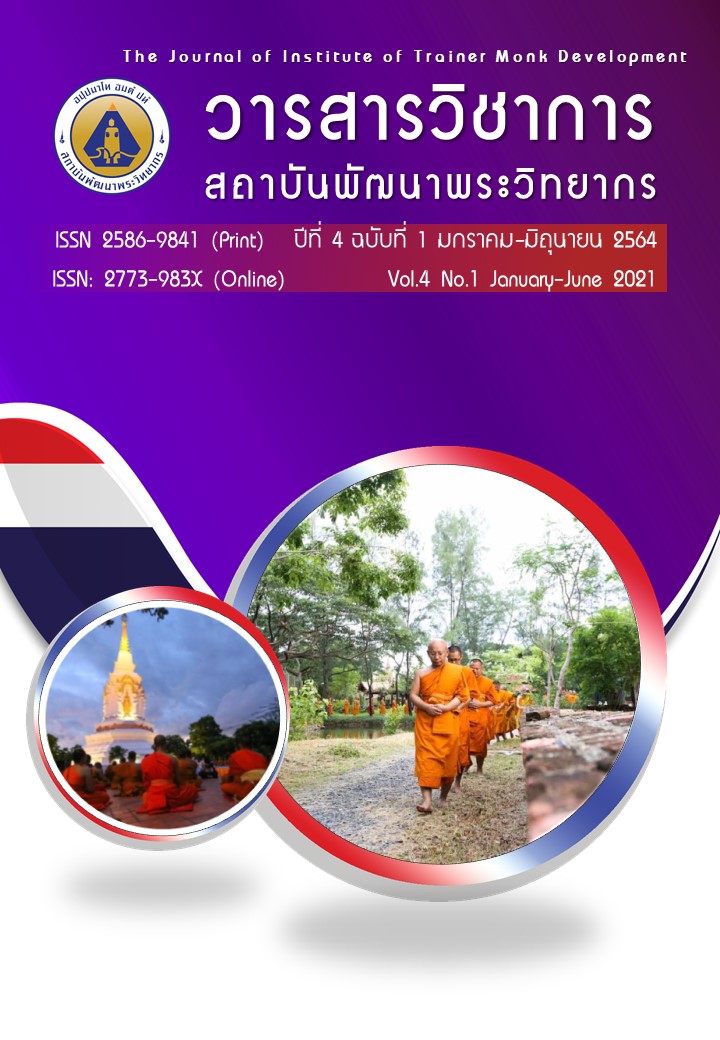The general public participation in democracy under the principles of good governance
Main Article Content
Abstract
The general public participation in democracy is a direct opportunity for the public to provide feedback and share their opinions base on their understanding of democracy. The general public should be part of the decision-making process, due to that decision will affect the livelihood of themselves and the others. The executive power of the country should practice good governance as a part of the decision-making process, which would help in making better decisions which is related to the problem and the need of the people. Using good governance also reenforce the country's executive power and the overall government to be more transparent to serve best and be accountable toward the people in all levels, these actions would promote and develop a successful and sustainable democracy in the long term. Being consistent in practicing good governance in all levels of the government will further develop and assure the best outcome for each government project and policy proposed. Good governance would assure that the general public rights toward government accountability and the right to check and balance; encourage the general public to voice out and be a part of the decision-making process in the most democratic way.
Article Details
บทความที่ได้รับการตีพิมพ์เป็นลิขสิทธิ์ของวารสารวิชาการสถาบันพัฒนาพระวิทยากร
ข้อความที่ปรากฎอยู่ในบทความที่ได้รับการตีพิมพ์ในวารสาร ถือเป็นความรับผิดชอบของผู้เขียนบทความ และข้อคิดเห็นนั้นไม่ถือว่าเป็นทัศนะและความรับผิดชอบของกองบรรณาธิการวารสารวิชาการสถาบันพัฒนาพระวิทยากร
References
จาดุร อภิชาตบุตร. (2563). หลักประชาธิปไตย: การมีส่วนร่วมของประชาชน. สืบค้นเมื่อวันที่ 26 มีนาคม 2563, จาก http://www.constitutionalcourt.or.th/occ_web/ewt_dl_link.php?nid=10426.
จิรนิติ หะวานนท์.(2563). หลักการประธิปไตยในความหลากหลายรูปแบบ. สืบค้นเมื่อวันที่ 1 เมษายน 2563, จาก http://www.constitutionalcourt .or.th/occ_web/ewt_dl_link.php?nid=1308.
พระพรหมคุณภรณ์(ป.อ.ปยุตฺโต). (2549).ธรรมาภิปไตยไม่มาจึงหาประชาธิปไตยไม่เจอ.พิมพ์ครั้งที่ 2. กรุงเทพมหานคร: พิมพ์สวย.
พระราชกฤษฎีการว่าด้วยหลักเกณฑ์และวิธีการบริหารกิจการบ้านเมืองที่ดี พ.ศ.2546. (2546). ราชกิจจานุเบกษา เล่ม 120. ตอนที่ 100 ก. 9 ตุลาคม.
พิเศษ ปั้นรัตน์. (2563). สืบค้นเมื่อวันที่ 26 มีนาคม 2563, จาก http://bus.ku.ac.th/qa/file/Justice.pdf.
มหาจุฬาลงกรณราชวิทยาลัย. (2539). พระไตรปิฎกภาษาไทย ฉบับมหาจุฬาลงกรณราชวิทยาลัย. กรุงเทพมหานคร: โรงพิมพ์มหาจุฬาลงกรณราชวิทยาลัย.
มหาจุฬาลงกรณราชวิทยาลัย. (2560). อรรถกถาภาษาไทย ฉบับมหาจุฬาลงกรณราชวิทยาลัย. กรุงเทพมหานคร: โรงพิมพ์มหาจุฬาลงกรณราชวิทยาลัย.
พระมหาศักรินทร์ ธมฺมาลโย; พระมหามฆวินทร์ ปุริสุตฺตโม. (2563). ปรัชญาการปกครองของฮั่นเฟยจื่อ. วารสาร มจร ปรัชญาปริทรรศน์. ปีที่ 3 ฉบับที่ 2. กรกฎาคม – ธันวาคม: 77-83.
ภาศิณี โกมลมิศร์. (2563). การศึกษาวิเคราะห์ธรรมชาติของอำนาจในปรัชญาเต๋า. วารสาร มจร ปรัชญาปริทรรศน์ ปีที่ 3 ฉบับที่ 1. มกราคม-มิถุนายน: 46-63.
รณชัย โตสมภาค. (2563). ประชาธิปไตย, สถาบันพระปกเกล้า. สืบค้นเมื่อวันที่ 27 มีนาคม 2563, จาก http://wiki.kpi.ac.th /index. php? Title.
สุธี วรประดิษฐ์. (2553). การมีส่วนร่วมของชุมชนงานสารสนเทศ สำนักงานส่งเสริมการศึกษานอกระบบและการศึกษาอัธยาศัยจังหวัดตราด. ตราด : สำนักงานการศึกษานอกระบบและการศึกษาตามอัธยาศัย จังหวัดตราด.
สำนักงานคณะกรรมการข้าราชการพลเรือน. (2542). คู่มือการสร้างระบบบริหารกิจการบ้านเมืองและสังคมที่ดีตามระเบียบสำนักนายกรัฐมนตรี ว่าด้วยการสร้างระบบบริหารกิจการบ้านเมืองและสังคมที่ดี พ.ศ.2542. กรุงเทพมหานคร: กองกลาง สำนักงาน ก.พ.
สำนักงานคณะกรรมการพัฒนาระบบราชการ. (2555). หลักธรรมาภิบาลของการบริหารกิจการบ้านเมืองที่ดี. กรุงเทพมหานคร: คณะรัฐมนตรีและราชกิจจานุเบกษา.
เอกชัย กี่สุขพันธ์ ปัญรส มาลากุล ณ อยุธยา และสุกัญญา ทองนาค. (2553). การบริหารจัดการที่ดีตามหลักธรรมาภิบาล. กรุงเทพมหานคร: จุฬาลงกรณ์มหาวิทยาลัย.


